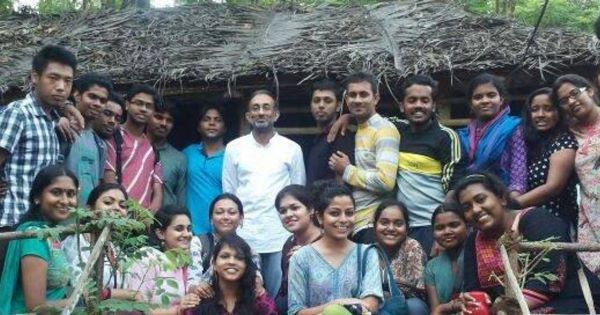Kerala Dr Manoj Kumar: In a country like India, where mental illness remains a taboo, 60 to 70 million people suffer from some or the other mental health problems. Statistics show 1 in every 5 individuals experiences symptoms of mental health illness. It’s alarming to note that India has the highest number of suicides globally, with over 260,000 cases reported annually. According to statistics from the World Health Organization, India’s average suicide rate is 10.9 per 100,000 people.
Besides, around 70% of India’s population resides in villages with no access to basic health services. With most mental health care centers concentrated in urban areas, a significant portion of the population suffers in silence due to this imbalance.
This disparity among social classes motivated Kerala Dr Manoj Kumar to leave his psychiatric practice in the UK and return to India to address the mental health needs of the rural populace. Today, we share the story of Dr Manoj Kumar of Kerala, who has not only raised mental health awareness but also brought much-needed relief to countless people.
Know all about Kerala Dr Manoj Kumar – Providing Free Mental Health Treatment to the Underprivileged
Dr. Manoj Kumar left his psychiatric practice in the UK and moved to India to provide mental health support to the underprivileged community in Kerala.
In 2008, he founded the Mental Health Action Trust (MHAT) in Calicut, Kerala, with the aim of providing a free, comprehensive, community-based, and cost-effective mental health care system for economically disadvantaged groups.
By adopting a unique model that integrates local community engagement with expert input, Dr. Kumar has assisted thousands of individuals in need.
According to Dr. Kumar:
Since the 17th century, madness was viewed as an illness without proper treatment. People were confined to overcrowded asylums where conditions often led to abuse until medications were developed in the 1960s. Even today, institutional care alone is insufficient. A paradigm shift towards community psychiatry was urgently needed.
Dr. Manoj Kumar’s Turning Point
Dr. Manoj Kumar’s journey to improving mental healthcare took a personal turn when his mother passed away from cancer. Despite receiving the best medical care, her psychological well-being was neglected. This experience, combined with his belief in social justice, inspired Dr. Manoj to make a difference.
“Governments were not doing enough to support people with severe mental illnesses. I knew that communities had to be at the forefront and a powerful solution to this growing problem was possible. I then left my job in the UK to head back home and get started on working towards this,” says Dr. Manoj.
Building a Community-Driven Model – MHAT
In 2008, Dr Manoj established the Mental Health Action Trust (MHAT) in Kozhikode, Kerala. His goal was to create a community-driven mental healthcare model. Central to this model is ‘task shifting,’ which involves delegating parts of the psychiatrist’s role to trained and supported volunteers.
MHAT utilizes existing community resources, such as palliative care or primary healthcare centers, and integrates non-professional workers like ASHA (Accredited Social Health Activists) nurses. These volunteers, coming from diverse backgrounds such as small business owners, teachers, and autorickshaw drivers, play a crucial role in providing local and accessible care.
Overcoming Stigma and Providing Holistic Care
The independence of MHAT’s centers across Kerala is vital for two reasons: it ensures localized, accessible care and helps overcome the stigma associated with mental illness. Volunteers organize rosters, raise funds, and support the centers, working together to bring normalcy to the lives of individuals with mental health challenges.
The community centers carry out initial assessments and organize outpatient camps, often using telepsychiatry to reach patients in remote areas. Local volunteers become the main contact for patients, ensuring that treatment plans are followed and needs are met. These centers also offer day-care services, family group therapy, and self-empowerment groups, which are crucial for supporting patients and their families.
Also Read: Meet Pune Doctor Dr Abhijit Sonawane Who Treats Homeless & Beggars For Free
Expanding Horizons for Treating Mental Health Disorders
With over 4,500 patients served across eight districts in Kerala, MHAT is now looking to expand its model internationally to support migrant workers in Oman, Muscat, and the larger Gulf region. Kerala Dr Manoj is working on digitalizing volunteer training to quickly and efficiently implement his model in new areas.
For Dr. Manoj Kumar, seeing remote communities in his home state access care provides hope and motivation. His work demonstrates that a community-based mental healthcare system can make a significant difference in the lives of countless patients.
Dr. Manoj Kumar’s inspiring journey shows how dedication, innovation, and community involvement can transform mental healthcare, bringing hope and support to those in need.
Featured Image Source: Twitter





